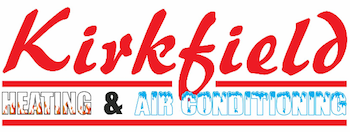
Ever done a double take when you took a look at your last energy bill? Although high energy bills can be the result of severe weather conditions, persistently high bills can also signify an inefficient HVAC system or your home is wasting energy by other means, like drafty windows or inadequate insulation.
One of the easiest ways to identify whether your home is wasting energy is by getting a home service professional to perform a home energy audit, also referred to as a home energy assessment. Keep reading to learn all about home energy audits, including what they are and their benefits.
What Is a Home Energy Audit?
An energy audit is a comprehensive inspection of how much energy your home consumes and whether – and where – your home may be losing or wasting energy. An inspector will review past energy bills while completing an energy audit to find out where energy is being used and how much.
The ultimate goal of an energy audit is to help homeowners save money on their energy bills by identifying energy-efficient renovations, which may include exchanging your existing HVAC system, putting in new insulation, plugging up leaks, or replacing old windows.
During the energy assessment, the auditor performs an inspection of the outside and inside of your home. The auditor completes a blower door test on doorways, windows and fireplaces to figure out if there are air leaks in your home. They’ll also inspect your home’s HVAC system, including the ductwork, the water heater, and the insulation in your attic. Some assessments could also include checking your current lighting system.
Benefits of a Home Energy Audit
It can be difficult for the average homeowner to know for sure how efficient their home is versus other similar homes in their community. However, lots of energy companies often provide information about where your home ranks in comparison to similar homes and whether it’s more efficient, about average, or inefficient versus your neighbors’ homes. This can be a good starting point to figure out if you need an energy audit performed.
Some of the benefits of a home energy audit include:
Learning How Efficient Your Home Is
It’s good to understand how efficient your home is and where you’re consuming the most energy. For example, if your ducts are damaged, it will lead to a significant increase in your energy bills and additional wear and tear on your HVAC system as it has to stay on longer to fully heat or cool your home.
Making Energy-Efficient Updates
An energy audit will outline where you need to make energy-efficient upgrades to save on energy and decrease utility bills. This might include replacing old weatherstripping or buying a new energy-efficient furnace.
Improving Health and Safety
Allowing air to leak into your home via doors and windows, or as a result of a lack of insulation can cause extra moisture to form, which can negatively affect your home’s humidity levels or lead to mold. This can lead to health conditions, especially for people suffering from asthma or allergies.
Raising Your Home’s Retail Value
Energy-efficient homes are preferred by homebuyers. You can sell your home much faster or for more money by telling prospective buyers that it’s energy efficient.
How to Perform an Energy Audit of Your Home
Although performing an energy audit independently might not be as detailed as hiring a professional, it’ll offer you a general idea of how energy efficient your home is. If you don’t find any problems during the DIY test, then you probably don’t need to call in a professional. Follow this step-by-step checklist:
- Review your HVAC system. Leaky ducts can lose nearly 20% of conditioned air, contributing to steeper energy bills and excess wear and tear on HVAC equipment. If you find leaks, use duct tape to close them. If your HVAC equipment is old and inefficient, upgrading to a new system can save you a substantial amount on your energy bills. In some cases, it is better to call a reputable HVAC company to inspect your system.
- Look for air leaks. Air leaks on average can raise the energy bills by 10 to 20%. Inside, look for air leaks in areas where you can find a draft, like along the edge of flooring and near baseboards and electrical outlets. Outside, you can look for air leaks along the home’s foundation, siding and mortar. Plug, caulk or seal any air leaks to save money.
- Examine insulation. If your home is older, it could mean your insulation is too. If you can see the joists, you likely need more insulation.
- Check ventilation. Ensure that all of your kitchen and bathroom exhaust fans are functioning properly, and check for evidence of rot or moisture.
Contact Kirkfield Heating & Air Conditioning for a Professional Energy Audit
If you are interested in professional help determining how energy efficient your heating and cooling equipment is, contact the HVAC experts at Kirkfield Heating & Air Conditioning today. We’ve proudly supported the residents of Winnipeg with quality home services for many years. Contact us today to request an appointment.




